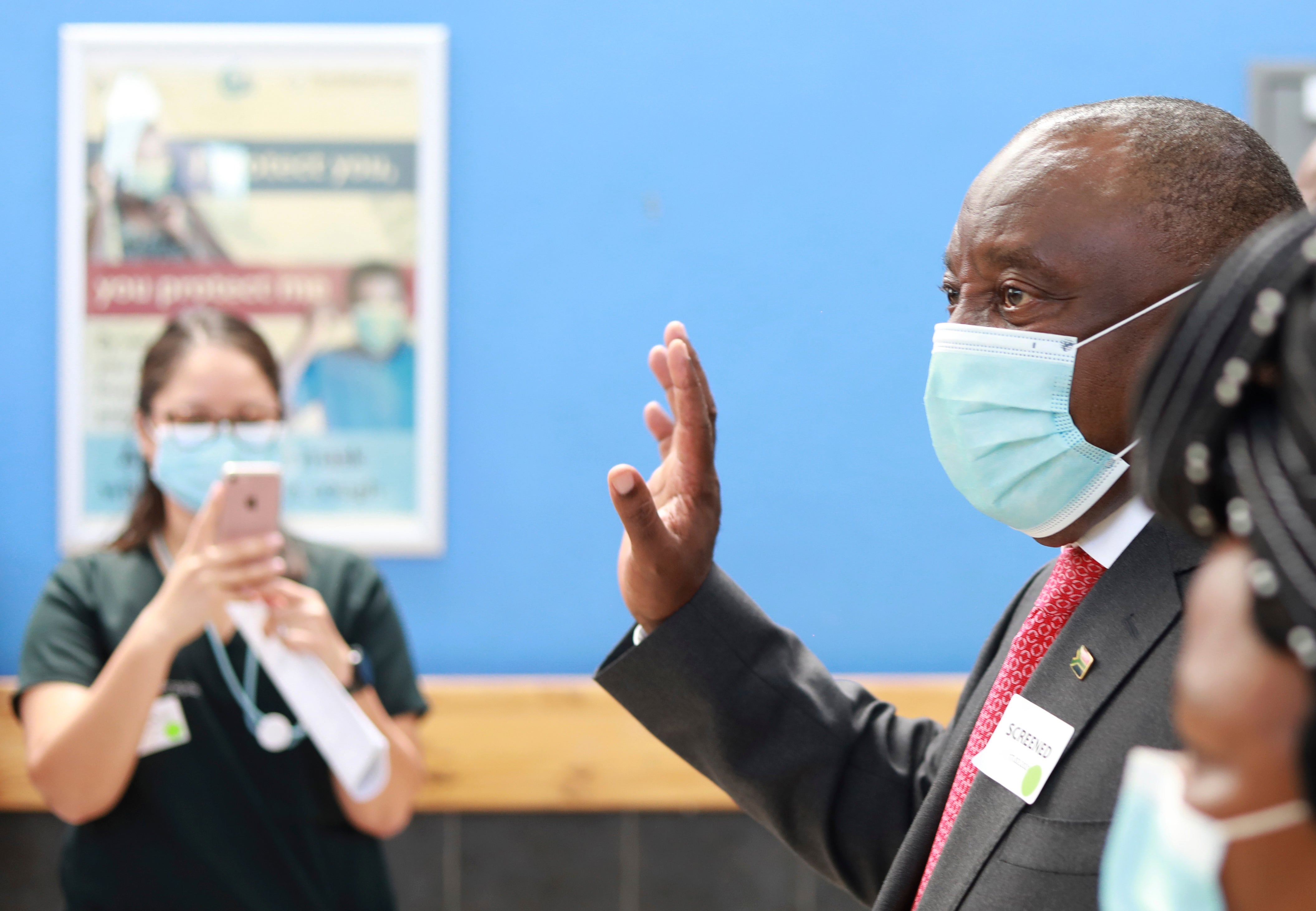South Africa's president fights own party over corruption
South African President Cyril Ramaphosa's anti-corruption drive is facing stiff resistance from political foes within his own party

South African President Cyril Ramaphosa s anti-corruption drive is facing stiff resistance from political foes within his own party including his predecessor, who is openly defying a ruling from the country's highest court to testify at an inquiry into state graft.
Ramaphosa is confronted by pushback on two fronts as former president Jacob Zuma refuses to appear at the long-running judicial inquiry despite a Constitutional Court ruling that he should.
Also, the ruling African National Congress' Secretary-General, Ace Magashule, has refused to step down from his powerful position pending his corruption trial. It's in defiance of Ramaphosa and ANC policy that officials facing corruption charges should step aside until their criminal cases are finalized.
Magashule appeared in court Friday, and his case will go to trial in August. He is one of 11 people, many of the others local government officials, charged with fraud and corruption relating to a $17 million government contract when Magashule was the premier of South Africa's Free State Province, a position he held from 2009-18.
"I’ve done nothing wrong. I’ll prove (it) in court," Magashule said outside the courthouse, where people wearing green and yellow ANC T-shirts gathered in support of him.
Both Zuma and Magashule have challenged Ramaphosa since he replaced Zuma as ANC leader in 2017 and became South Africa's president in 2018. With it, they have accentuated the deep divisions within the ANC, the party Nelson Mandela once led and which was at the forefront of the fight against the apartheid regime.
Ramaphosa's pledge to root out corruption helped to propel him to power in Africa's most developed economy, which was in recession even before the disastrous effects of the coronavirus pandemic. But he has found it difficult to take effective action against widespread graft, which also infiltrated the country's attempts to fight COVID-19.
A report this month by the state's Special Investigative Unit found that more than $800 million might have been lost to improper or corrupt government contracts for protective equipment for health workers and others as South Africa grappled with surging cases in the first few months of the pandemic.
That scandal further angered South Africans who have been inundated with allegations of high-level corruption during the state corruption commission, which is probing Zuma's time as president from 2009-18.
As well as refusing to testify, Zuma claimed commission chairman Deputy Chief Justice Raymond Zondo, the second most senior judge in the country, is biased and should not oversee the inquiry.
Zuma could be found guilty of contempt and jailed for his refusal to testify. He also faces corruption charges related to allegations he received bribes when the county purchased weapons in 1999. He is to appear in court on those charges next week.
Inflaming the situation further, Zuma this week accused Ramaphosa of bribing his way to the ANC presidency in 2017.
Attempting to find a resolution, Police Minister and top ANC official Bheki Cele met with Zuma. He is expected to report back to ANC leaders on his discussion with the former president.
However, political analyst Prof. Dirk Kotze of the University of South Africa said the meetings with Zuma were unlikely to produce a solution.
“What is happening is that Zuma wants a political solution while the rest, including Judge Zondo, are going for a legal approach, and you cannot mix the two," said Kotze.
“They will not be willing to make any concessions so the meeting will not resolve the matter. It is a difficult position for Zuma because he has no institutional power behind him now, he is no longer a decision-maker in the party,” said Kotze.
Another political analyst, William Gumede of the Democracy Works think tank, agreed that a showdown was inevitable.
"The case is clear. Zuma contravenes the constitutional court," Gumede said. “There’s no maneuvering space.”
___
AP journalist Gerald Imray in Cape Town contributed.